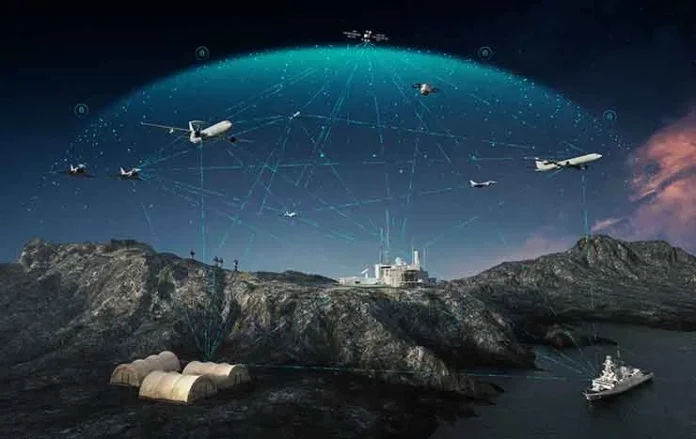Munich / Falls Church, Va. Airbus Defence and Space together with Northrop Grumman Corporation and seven industrial players forming the ASPAARO (Atlantic Strategic Partnership for Advanced All-domain Resilient Operations) team have been selected by the NATO Support and Procurement Agency (NSPA) to conduct one of three Risk Reduction and Feasibility Studies (RRFS). The studies aim to suggest technical solutions for the Alliance Future Surveillance and Control (AFSC).
In November 2021, Airbus with subcontractors Northrop Grumman, BAE Systems (UK), Exence (Poland), GMV (Spain), IBM (US), KONGSBERG (Norway), Lockheed Martin (US) and MDA (Canada) submitted a proposal to NSPA outlining how this transatlantic team would address the complexities of NATO’s future capability requirements.
The selection of the ASPAARO team as a study partner represents an important step toward providing NATO with unmatched tactical surveillance, command and control capabilities to overcome the challenges of the future and replace the current Airborne Warning and Control System fleet which will reach the end of its service life around 2035.
Over the next months the ASPAARO team will perform a thorough assessment of a fully distributed surveillance model; refine details; assess related feasibility, risks and costs; and provide a recommended technical solution with proven technologies, open standards and interfaces for the multi-domain capabilities AFSC shall provide.
“Airbus is committed to a long-lasting cooperation with NATO and its member nations on the Alliance Future Surveillance and Control (AFSC) programme. The current crisis situation is a reminder that vigilance as well as surveillance and control capabilities are of key importance to the defence of the Alliance. Airbus Defence and Space is leading the ASPAARO team which will be contributing to the Risk Reduction and Feasibility Studies. The focus is on a cross-domain fully distributed system to create the most reliable, resilient and capable solution for NATO’s future surveillance and control,” said Michael Schoellhorn, CEO of Airbus Defence and Space.
Northrop Grumman President of Aeronautics Systems Tom Jones stressed ASPAARO’s team commitment to NATO’s security mission. “The ASPAARO team brings together some of the world’s best engineers, scientists and system managers. The team is committed to offering optimum technical solutions to our NATO customer’s future surveillance and security needs.”
The outcome of the three studies will help NATO and individual allies make informed decisions on the final AFSC technical concept and acquisition of surveillance systems.












